Top Banks in Pakistan
The banking industry is an essential component of Pakistan's financial sector.
The banking industry is an essential component of Pakistan's financial sector. It accounts for up to 55% of GDP and about 74% of the assets in the financial industry. A penetration rate of 24.34% was achieved in Pakistan in 2018, with 50.565 million bank accounts for 207.77 million people.

Currently, about 34 banks are functioning in Pakistan, including 20 private, 5 foreign, 5 public sectors, and 4 specialized banks.
There are more than 16000 branches in the network of Pakistani banks, which are dispersed throughout the nation. In addition, the country has 53,269 POS14,148 ATMs that are operational.
Pakistan's central bank is called the State Bank of Pakistan. Through statutory, regulatory, and supervisory frameworks, SBP promotes monetary and financial stability. In addition, it is in charge of maintaining Pakistan's credit and economic stability.
According to the report published by KPMG, the total assets of banks (under review in the report) increased by 20% in 2021. This was achieved due to solid deposit mobilization, with total deposits growing by 17.7% to PKR 21,836 billion. In addition, total advances increased by 23.4% to over PKR 10,192 billion.
Banking structure of Pakistan

The banking system in Pakistan is categorized into four groups, which include:
1. Public sector banks
The banks incorporated in Pakistan and most of their shares and capital owned or controlled by the government directly or indirectly are referred to as Public Sector banks.
There are 5 Public sector banks currently operating in Pakistan. The name of these 5 PSBs are as follows-
- First Women Bank Limited.
- National Bank of Pakistan.
- The Bank of Khyber.
- The Bank of Punjab.
- Sindh bank limited.
2. Domestic Private Banks
The banks incorporated in Pakistan, with most of their shares held by the private sector, are domestic private banks. These banks are registered in Pakistan as companies with limited liability. Some famous private banks in Pakistan are Habib Bank, United bank, MCB bank, etc.
3. Foreign Banks
Banks registered and headquartered outside the country where they operate are called foreign banks. There are mainly five foreigners currently working in Pakistan.
Some of Pakistan's foreign banks are-
- Citi Bank
- Deutsche Bank
- Industrial and commercial bank of China
- Bank of China

4. Specialized Banks
Specialized banks are established to support specific economic activities, such as agriculture. Since they engage in particular functions or activities, they are called specialized banks.
Some of Pakistan's famous specialized banks are-
- Zaral Tarqlati Bank
- SME Bank
- Punjab Provincial Cooperative Bank
- Industrial Development Bank of Pakistan
5. Islamic Banks
Islamic Banks follow the principles of Islamic law(Sharia). Two main principles of Islamic banking include sharing profit and loss and prohibiting the collection and payment of interest by lenders and investors.
Islamic banks earn money by way of a system called equity participation. In this system, borrowers return the money without interest but share a part of their profit with the bank.
There are five Islamic Banks currently in Pakistan. The names of these five banks are-
- Meezan Bank
- Bank Islami- Pakistan
- MCB Islamic Bank
- Dubai Islamic Bank Pakistan
- Al-Bakara Bank(Pakistan)
Habib Bank Limited (HBL)
To aid Indian Muslims, Muhammad Ali Jinnah (the founder of Pakistan) asked to establish this bank in Mumbai in 1941. It is Pakistan's largest bank in terms of total assets.
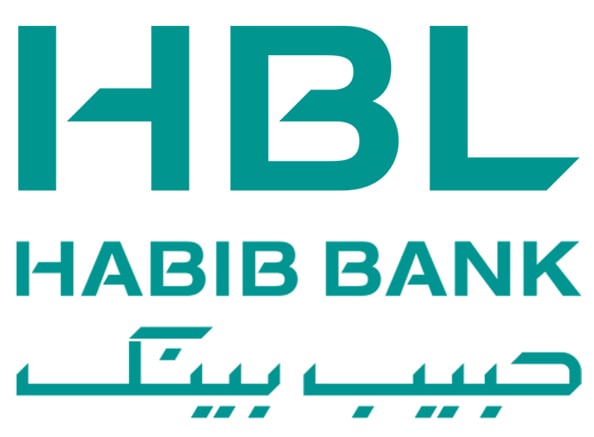
The bank offers branch banking, corporate banking, retail financing, SME financing, and investment banking.
The main headquarter office of HBL is in Karachi. HBL serves customers through over 1500 branches in various cities around Pakistan and 55 branches in other countries. HBL constitutes a chain of roughly 2007 ATMs.
It is the biggest bank in Pakistan, which engages in various financial services, including commercial banking. In addition, it provides Asset management services to clients in Pakistan and other countries.
Branch Banking is one of the bank's departments, which offers loans, securities, and a range of banking services for agricultural, retail, small business, and corporate clients.
The Pakistan National Bank (NBP)
Established in 1949, Pakistan's national bank is the biggest state-owned financial institution. This bank assists Pakistan's Central Bank in its operations. The banking services this bank offers serve both the public and private sectors.

Pakistan's Karachi serves as the company's headquarters. More than 12000 workers work in NBP across Pakistan. It has 1450 branches spread over Pakistan and 21 branches abroad.
The National Bank of Pakistan has developed various consumer items to enhance marketing, cater to diverse societal segments, and engage with its cultural activities.
Some projects have been developed for society's low- to middle-income segments. In addition, it has implemented unique lending models such as microfinance for business owners, industries, and farmers. Therefore, it might be regarded as Pakistan's top bank.
Meezan Bank
One of Pakistan's biggest banks is Meezan Bank. It was established in 1997 and is Pakistan's first Islamic bank. This bank follows the guidelines and principles of Islamic law throughout its operations.

About 600 branches are located throughout Pakistan's various cities. The main office is in Karachi. It also has a presence abroad in Bangladesh, Bahrain, Afghanistan, and the United Arab Emirates.
In the nation's Islamic banking sector, the bank holds a market share of 35%. The largest interest-free auto financing product in Pakistan is the Car Ijarah, provided by Meezan Bank.
The bank offers various services, including savings accounts, karobari munafa accounts, and meezan rupee current accounts.
The Pakistani activities of HSBC Oman, which only had one branch, were purchased by Meezan Bank in 2015.
MCB Bank
MCB was established in 1947. The headquarter is located in Pakistan's Lahore. In 1974, Zulfikar Ali Bhutto's government nationalized MCB.
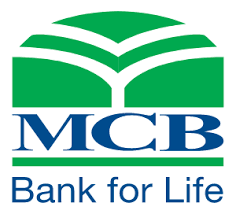
In 1991, this was the first bank to be privatized, and a collection of Pakistani business organizations under the leadership of Nishat Group acquired it. The Nishat Group has a controlling stake in the bank as of June 2008. Shoaib Mumtaz is the bank's president and CEO at the moment.
It has more than 1100 branches across Pakistan and eight across several nations. It employs more than 14,000 workers and serves around 4 million clients through various financial services.
To enter international markets, the bank's management changed the institution's name from Muslim Commercial Bank to MCB Bank in 2005. After raising $150 million in global depositary receipts, MCB became the fourth Pakistani business on the London Stock Exchange list.
Allied Bank
The Ibrahim Group subsidiary Allied Bank Limited is the fifth-largest commercial bank in Pakistan. Allied Bank is one of the biggest banks in the nation, with more than 1400 branches and ATMs. The bank's registered office is in Lahore.

With the name Australasia Bank, it was the first Muslim bank created in Pakistan before independence (1942). It changed its name from Australasia Bank Limited to Allied Bank of Pakistan in 1974 and amalgamated with Sarhad Bank Ltd, Lahore Commercial Bank Ltd, and Pak Bank Ltd.
The Pakistani government sold its final 11.5 percent interest in ABL in December 2014 for PKR 14.4 billion. The remaining 131.3 million government shares were purchased at a strike price of Rs. 110 per share, and the deal was finalized at that price.
The Pakistan Credit Rating Agency has maintained Allied Bank Ltd.'s long-term credit rating at AAA [Triple A] till June 30, 2020. The bank's short-term credit rating stood at A1+ [A one plus] (PACRA).
For more information about the Allied Bank, click here.
United Bank Limited (UBL)
United Bank Limited (UBL) is a British firm Bestway Group subsidiary and a global commercial bank operating in Pakistan. It is based in Karachi.
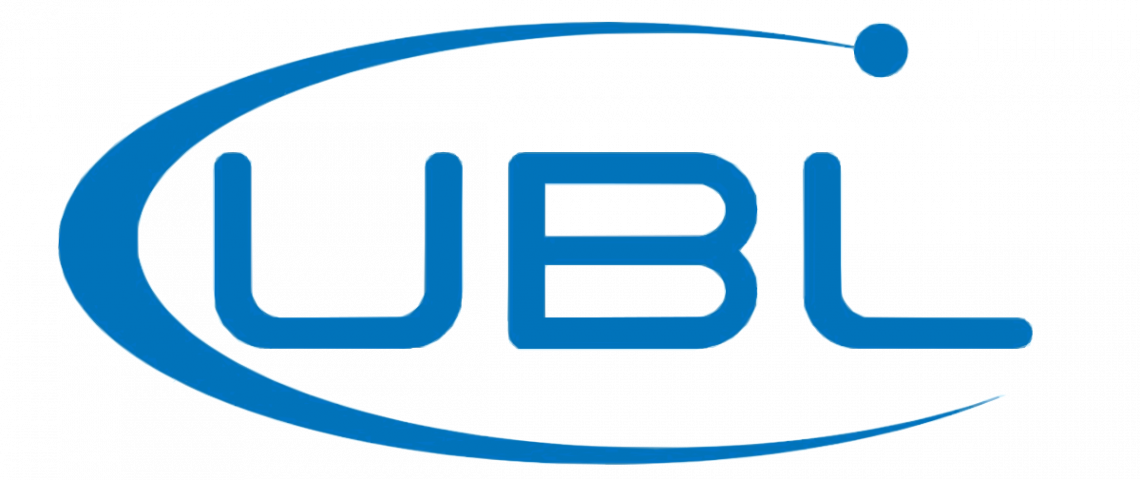
A group led by Abu Dhabi Group and Bestway purchased the bank's 51 percent ownership stake from the Pakistani government in 2002. The government sold its remaining 19.8 percent stake in the bank for $387 million in June 2014.
It is one of the biggest banks in the private sector of Pakistan, with more than 1,400 locations nationwide, 19 abroad, and more than 4 million clients.
The bank employs about 13,233 people worldwide, has an asset base of over $1.5 trillion, and has a diverse clientele that includes a wide range of markets and sectors.
Through its network of branches and presence in 12 countries across four continents, including the UAE, Bahrain, Qatar, Yemen, UK, Switzerland, China, Oman, US, Tanzania, Iran, and Pakistan, UBL offers services in wholesale and retail banking.
The State Bank of Pakistan classified UBL as a domestic systemically significant bank (D-SIB) for 2020.
UBL is the only bank to have won the Pakistan Stock Exchange's (PSX) "Top Companies of the Year" award three years in a row (2016-18).
Faysal Bank
Mohammed bin Faisal Al Saud, the son of the late King Faisal of Saudi Arabia, established Faysal Bank in Pakistan in 1987 with a small branch and as a subsidiary of Faysal Islamic Bank, a Bahraini bank.
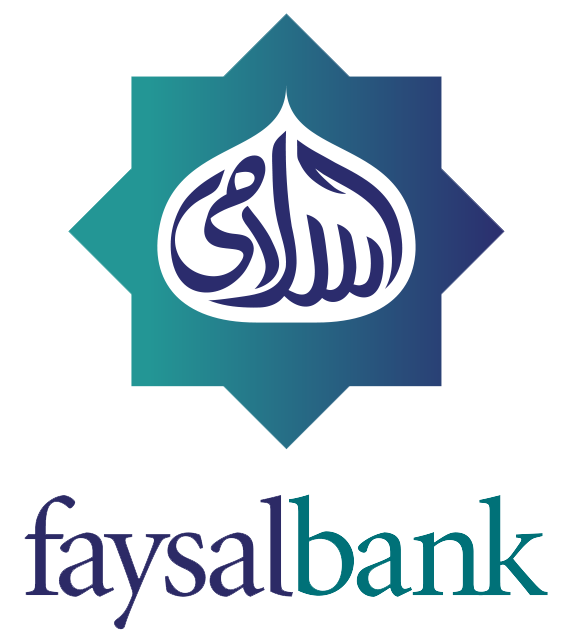
It was incorporated as a public limited company in Pakistan on October 3, 1994, under the Companies Ordinance of 1984.
It is among the prominent participants in Pakistan's banking sector, with total assets exceeding 3.80 billion dollars.
It provides various financial services in Pakistan, including corporate, retail, commercial, and Islamic banking. More than 3000 people work at the bank, which has roughly 350 branches spread over 100 cities.
With a focus on serving clients and small businesses, Faysal Bank has developed several lending and deposit stocks. This comprises financing for purchasing raw materials, inventories, machinery, new equipment, and other services.
The bank has been assigned a "AA" long-term rating and an "A1+" short-term rating by the Pakistan Credit Rating Agency Limited (PACRA).
For more information about this respected banking institution, click here.
Bank Alfalah
Bank Alfalah was established as a public limited partnership under the Companies Ordinance on June 21, 1992. It began banking operations on November 1, 1997.
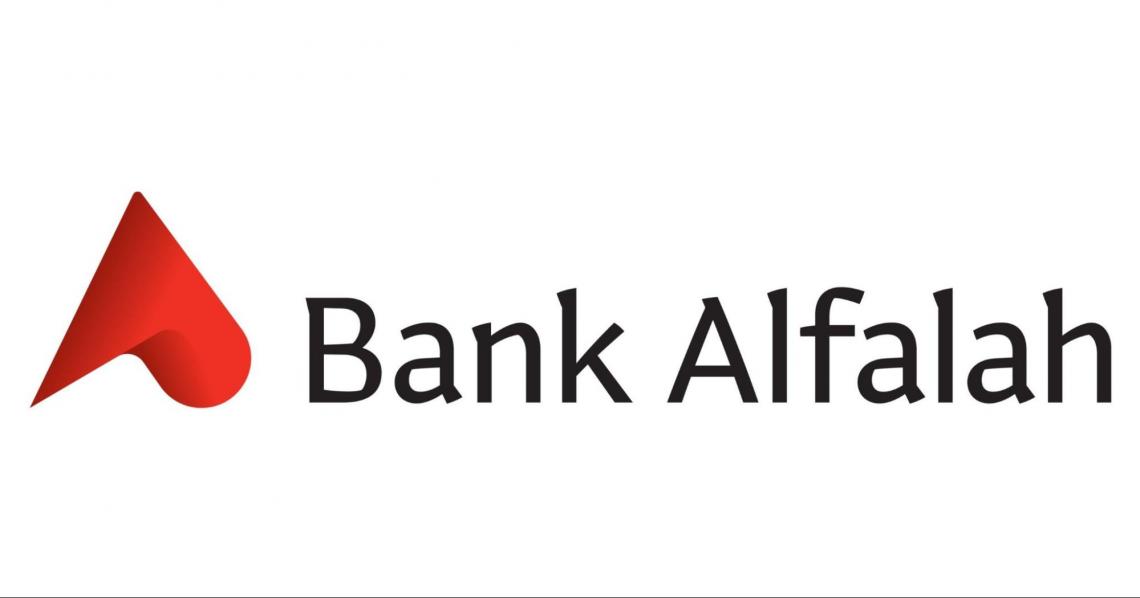
In 1997, the bank was privatized and taken over by Abu Dhabi Group and United Venture Holding of the United Arab Emirates and Pakistan, respectively.
Bank Alfalah Limited is the sole bank in Pakistan owned by the Abu Dhabi Group. Bank Alfalah is the sixth-largest bank in the country, with a network of more than 700 branches throughout Pakistan, and employs over 7000 people.
The bank provides business solutions to clients, enterprises, organizations, and states through various products and collaboration.
According to its annual report, the bank reported Rs. 55.378 billion in revenue and Rs. 8.513 billion in net income in 2014. Bangladesh, Afghanistan, Bahrain, and the United Arab Emirates are among the nations where it operates globally.
Bank Alfalah was mentioned in the FinCEN leak, which was made public by Buzzfeed News and the International Consortium of Investigative Journalists (ICIJ).
Soneri Bank
Following the Companies Ordinance, Soneri Bank Limited was established as a public limited partnership in Pakistan in 1991. Its official office is in the PNSC building in Karachi, Sindh, and its shares are traded on the Pakistan Stock Exchange.
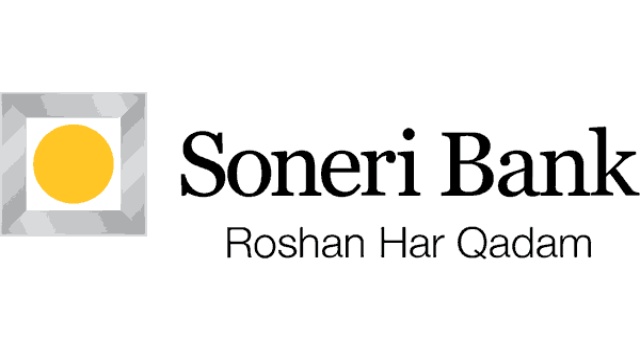
It is one of Pakistan's most rapidly expanding mid-sized banks, serving the nation's urban and rural parts.
Soneri Bank's ideology is inspired by the Sun, which beams on every individual without discrimination. Soneri Bank has undertaken several measures to empower the people of Pakistan through its "Roshan Har Qadam" program.
Pakistan has 21 Islamic banking branches among its more than 360 branches.
In its annual financial report for 2019, the bank, which had 3,526 employees as of 2020, stated that it had made a profit of Rs.1.9 billion.
Soneri Bank offers a comprehensive range of retail banking services to Pakistani consumers, including current accounts, savings accounts, SME financing, agricultural financing, pensioners accounts, consumer finance, Bancassurance, deposit lockers, electronic banking, and SMS alert services.
Askari Bank
Pakistan's Askari Bank, a corporate and retail bank, is under the management of the Fauji Foundation. The bank was founded as a public limited company in the year 1991. The Fauji Group acquired the bank in 2013.

Askari Bank acquired Askari Securities in September 2020, a wholly-owned subsidiary of Askari Bank.
It operates in the following business segments: Branch Banking, Corporate Banking, Treasury, Consumer Banking, Islamic Banking, Foreign Operations, Head Office, and Others.
The bank was also registered on other stock markets before Karachi, Lahore, and Islamabad joined forces to form the one-of-a-kind united Pakistan Stock Exchange.
The bank is currently listed on the Pakistan Stock Exchange (PSX). The Banking Companies Ordinance granted the bank its license. The bank has 560 branches nationwide and more than 7,279 employees at its headquarters in Rawalpindi.
To address the various financial needs of Pakistani women, Askari Bank launched a customized current account service called Askari Sahar.




or Want to Sign up with your social account?